 December 2, 2021 John E. Ross, KD8IDJ, Editor
| ||||||
Two 160-Meter Events in December Give Nod to 1921 Transatlantic Tests In December, there will be two opportunities for 160-meter operators to fill the airwaves with activity and to test skills and stations on that band. The events take place a century after the transatlantic tests of the 1920s, which ushered in the dawn of international amateur radio communication.
The annual ARRL 160-Meter Contest begins at 2200 UTC on Friday, December 3, and ends at 1559 UTC on Sunday, December 5. This 42-hour CW-only contest is most similar to the original transatlantic tests. This contest typically attracts a good crowd and presents a challenge to operator skill and station performance. The Radio Society of Great Britain (RSGB) is planning to activate special call signs to commemorate the centenary of the tests. Stations from the UK and Crown Dependencies will use up to seven different call signs, each having a "6XX" suffix: G6XX, England; GD6XX, Isle of Man; GI6XX, Northern Ireland; GJ6XX, Jersey; GM6XX, Scotland; GU6XX, Guernsey, and GW6XX, Wales. In addition, listen for UK stations appending the suffix "/2ZE" to the station's call sign. Use of this commemorative suffix has been authorized for use December 1 - 26 by Ofcom, the UK's communications regulator. On December 12 -- and not to be confused with the ARRL 160-Meter Contest -- ARRL and the RSGB will jointly sponsoring the 160-Meter Transatlantic Centenary QSO Party. This 6-hour event will run from 0200 to 0800 UTC. The event coincides with the 100th anniversary of the successful Second Transatlantic Tests. Participating stations will operate only on CW, trying to contact the two official call sign activations, W1AW and GB2ZE. The stations may listen for callers 1 kHz above their transmitting frequency, to shift the pileup from their transmit frequency. They may also periodically ask for DX callers only. The exchange is call sign and signal report.
During the QSO Party, ARRL will activate W1AW from Newington, Connecticut. RSGB will activate GB2ZE with help from a team of stations, including members of the GMDX Group of Scotland sharing the operating duties. GB2ZE commemorates the call sign of Paul Godley, 2ZE, who was sent by ARRL to the UK to lead the second Transatlantic Test in December 1921. W1AW will be active for all 6 hours. Stations operating as GB2ZE will follow this schedule:
The GMDX Group will award a quaich -- a traditional Scottish drinking cup representing friendship -- to the first stations in North America and the UK to complete contacts with both W1AW and GB2ZE during the QSO Party. A commemorative certificate will be available for download. Participants will not have to submit logs. The official logs from W1AW and GB2ZE will be used to determine the winners and for certificates. For additional details, visit http://www.arrl.org/transatlantic or rsgb.org/main/activity/transatlantic-tests. Dayton Hamvention Expects to be Live Event in 2022 Dayton Hamvention® organizers are planning to mount an in-person show in 2022, the first following 2 years of COVID-related cancellations. The event is set for May 20 - 22 at the Greene County Fairgrounds and Expo Center in Xenia, Ohio. Last January, Hamvention organizers from the sponsoring Dayton Amateur Radio Association (DARA) announced they were calling off the 2021 event after considerable planning was already under way. The Hamvention Executive Committee cited lagging COVID-19 vaccine distribution in the US and the emergence of a more communicable form of the virus. Southgate Amateur Radio News quoted Hamvention General Chairman Rick Allnutt, WS8G, as saying that Hamvention committees "have been meeting, and volunteers are committed to making up for the time lost to pandemic cancellations." The Hamvention website is already accepting bookings from vendors and inside exhibitors, and individual visitors can already buy tickets, which Allnutt said, "are all printed and ready to go." Nominations for the 2022 Hamvention Awards opened on November 1. Hamvention seeks "the best of the best" nominees for its Technical Achievement, Special Achievement, Amateur of the Year, and Club of the Year awards. Nominations close on February 15, 2022. Submit nomination forms via email or USPS to Hamvention Awards Committee, Box 964, Dayton, OH 45401-0964. The 2022 Dayton Hamvention is an ARRL-sanctioned event. Read an expanded version. ARRL Podcasts Schedule
The latest edition of the Eclectic Tech podcast (Episode 48) features a conversation The On the Air and Eclectic Tech podcasts are sponsored by Icom. Both podcasts are available on iTunes (iOS) and Stitcher (Android) as well as on Blubrry -- On the Air | Eclectic Tech. Fall ARRL Section Manager Election Results The only contested seat for Section Manager (SM) in the fall election cycle was in Kansas, where incumbent Ron Cowan, KB0DTI, of La Cygne, came out on top in the two-person race. Cowan outpolled challenger Lloyd Colston, KC5FM, of Arkansas City, 260 to 225. Ballots were counted on November 23 at ARRL Headquarters. Cowan has served as Kansas Section Manager since 2003. His new 2-year term will begin on January 1, 2022.
These incumbent Section Managers faced no opposition and were declared elected for new terms: David Stevens, KL7EB (Alaska); Mike Patterson, N6JGA (East Bay); Bill Mader, K8TE (New Mexico); John Kitchens, NS6X (Santa Barbara); David Thomas, KM4NYI (Tennessee), and Raymond Lajoie, AA1SE (Western Massachusetts).
An interim Section Manager (SM) has been appointed in Maine, effective on December 1, after incumbent SM Robert Gould, N1WJO, resigned for personal reasons. Gould had served since July 2020. ARRL Field Services Manager Mike Walters, W8ZY, appointed Phil Duggan, N1EP, of Milbridge as interim Section Manager to complete the current term, which ends on June 30, 2022. Duggan is a retired US Navy electronics technician chief and active in emergency communications. He served previously as Maine Section Emergency Coordinator. Duggan is active in promoting amateur radio, especially among youth. Nominating petitions for the next Maine SM term of office are due at ARRL Headquarters no later than March 4, 2022. See the January 2022 issue of QST for the nomination announcement or the ARRL website for further details. YOTA Month Continues to Expand into the Americas December is YOTA Month, celebrating and encouraging Youngsters/Youth On the Air. Amateur radio operators who are 25 years old and younger will be helming special event stations around the world throughout December in celebration of youth in amateur radio. YOTA Month stations will be on all bands and modes at various times. In the US, the call signs will once again be K8Y, K8O, K8T, and K8A. Three new DXCC entities will be participating for the first time. Last year, 28 operators in the Americas participated in YOTA Month, and this year, Youth in the Americas anticipates an increased level of youth activity from South America. Last year, young hams around the world surpassed their goal of 100,000 contacts during YOTA Month, with a final tally of 137,000. Stations in the Americas logged 14,700 of those contacts. Overlapping with YOTA Month is Round 3 of the YOTA Contest, December 30, 2021, 1200 - 2359 UTC. More information about YOTA Month is available on the Youth on the Air website, which is sponsored by Icom America. Tambien disponible en Español. ARRL Learning Network Webinars
More webinars are coming soon! ARRL members may register for upcoming presentations and view previously recorded Learning Network webinars. ARRL-affiliated radio clubs may also use the recordings as presentations for club meetings, mentoring new and current hams, and discussing amateur radio topics. The ARRL Learning Network schedule is subject to change. IARU Reports Another Over-the-Horizon Radar System is Under Construction in India In October, the International Amateur Radio Union (IARU) Region 1 Monitoring System (IARUMS) newsletter reported on the continuing run of over-the-horizon radar (OTHR) troublemakers that often cause severe interference on amateur radio bands -- primarily in IARU Regions 1 and 3 but are audible in the rest of the world. Now, another threat is looming, IARU Region 1 says. IARU Region 1 has cited a report by Alpha Defense India that the Defence Research and Development Organisation (DRDO) premier
radar development laboratory is working on an OTHR system to keep a close eye on Chinese movements in the Indian Ocean region. The system design has already been completed, according to the report. The prototype stage comes next. According to the report, the radar prototype is to have two different types of radar arraysâ--âa log-periodic wire antenna array and a broadband monopole antenna array. It is believed that the log-periodic antenna array will be used to determine the best maximum usable frequency (MUF), which is known to depend on current conditions in the ionosphere and the sunspot cycle. The monopole antenna will consist of a 32-element array. The actual system will be developed after extensive testing and evaluation, but the report gave no timeline or completion date. "OTHRs often massively interfere with amateur radio," the IARU Region 1 report said, citing the well-known Russian "Contayner" OTHR, an OTHR at the UK base in the Republic of Cyprus, and others in Iran and China. "They are present daily on several frequencies within the exclusive amateur radio HF bands," IARU Region 1 said. Read an expanded version. ARDC Grants Will Expand Emergency Capabilities in Haiti and the US Virgin Islands Grants from Amateur Radio Digital Communications (ARDC) will benefit amateur radio emergency communication networks in Haiti and the US Virgin Islands (USVI). The $14,864 grant to the Haiti International Friendship Amateur Radio Club (HIFARC) will enable the club to set up a network of HF stations to provide emergency communications to remote areas cut off by the August 2021 earthquake. The 7.2-magnitude earthquake made evident the urgent need for better emergency communications. The earthquake completely cut off communications to some areas of the HIFARC, in coordination with the Radio Club d'Haiti, plans to set up an HF emergency communications network. Haitian amateurs have identified six potential stations, and HIFARC plans to provide the equipment and personnel to set them up. Grant funds will allow HIFARC to outfit each station with a small generator, an HF transceiver, a power supply, and a wire antenna. Working closely with the Radio Club d'Haiti, HIFARC helps to train new hams and bolster the emergency communications network there. The St. Croix Amateur Radio Club (STXARC) in the USVI will use its ARDC grant to augment the territory's repeater infrastructure, enabling the purchase of backup repeaters, improving repeater coverage, and training and equipping new hams. When two Category 5 hurricanes -- Irma and Maria -- hit the USVI in 2017, hams volunteered to help. The two monster storms left the power grid and communication infrastructure in shambles, with 95% of St. Croix's electric utility poles and antenna structures dismantled. The USVI government's primary land mobile radio (LMR) trunked radio system was essentially non-functional, and the Army National Guard couldn't be heard on any radio frequency for a week following the storms. Territory amateur radio clubs sprang into action, employing skills learned during hundreds of hours of training exercises. St. Croix hams quickly established a daily HF net to support first responders. A single surviving repeater provided limited communication between islands. The $27,955 ARDC grant will allow the Virgin Islands Amateur Radio Group (VIARG) -- a group formed after the 2017 hurricanes -- to purchase backup repeaters, more resilient antennas that will also expand coverage, and training materials. Read an expanded version. Announcements
Amateur Radio in the News ARRL Public Information Officers, Coordinators, and many other member-volunteers help keep amateur radio and ARRL in the news.
Share any amateur radio media hits you spot with us. ARRL Author, QST Technical Editor Joel Hallas, W1ZR, SK Retired QST Technical Editor Joel R. Hallas, W1ZR, of Westport, Connecticut, died on November 25. An ARRL member, he was 79. Hallas retired in 2013 but remained active as a contributing editor, handling the popular "The Doctor is In" column in QST and the podcast of the same name. He had been a radio amateur since 1955. "Joel was not only brilliant, he shared that brilliance with the ham radio community in a way that taught innumerable hams things they needed to know in order to experience success and enjoyment," said ARRL Publications and Editorial Department Manager Becky Schoenfeld, Retired ARRL Publications Manager Steve Ford, WB8IMY, recalled Hallas as "an iconic figure in amateur radio media as a prolific author of QST articles and ARRL books, and even in the audio podcast community. I greatly enjoyed being Joel's sidekick for the popular 'Doctor is In' podcast. He had a wry sense of humor both on and off the microphone and a remarkably stoic attitude toward the illness that would eventually claim his life." Hallas authored six books about communications technology, published by ARRL. His titles include Basic Radio; Basic Antennas; The ARRL Guide to Antenna Tuners; Hamspeak; The Care and Feeding of Transmission Lines; Understanding Your Antenna Analyzer, and The Radio Amateur's Workshop. Hallas earned his bachelor's in electrical engineering from the University of Connecticut and an MSEE from Northeastern University. He previously had worked for Raytheon as a radar systems engineer and for GTE as a nuclear weapons effects (electromagnetic pulse) analyst and as a satellite and terrestrial communications systems engineer, as well as for IBM and AT&T. He also taught at the college level. He enjoyed sailing, as described in the July 2009 issue of QST. He and his 24-foot sloop Windfall -- fully equipped with a ham station that used the insulated backstay as an HF antenna -- graced the front cover. Survivors include his wife of 58 years, Nancy, W1NCY. Past ARRL Rocky Mountain Division Director Claude Maer, W0IC, SK Past ARRL Rocky Mountain Division Director Claude Maer, Jr, W0IC, of Denver, Colorado, died on November 16. An ARRL member, he was 102. Maer grew up in Fort Worth, Texas, and attended Rice University in Houston, graduating in 1940 with distinction and enlisting in the US Maer told a Veterans History Project interviewer several years ago that his eventual route to military service really began when he got his ham radio license at the age of 12 in 1932. As a result, he was invited to attend Texas Army National Guard summer camp. Maer served as the ARRL Rocky Mountain Division Vice Director for only 1 month before then-Rocky Mountain Division Director Franklin Matejka, W0DD (SK), announced his resignation to take a job overseas. Maer acceded to Director and served in that leadership position until 1960. Read an expanded version. The K7RA Solar Update Tad Cook, K7RA, Seattle, reports: Solar activity was up this week. Average daily sunspot number increased from 26.9 to 46.1, and average daily solar flux was up 10.8 points to 90.9. Geomagnetic indicators were a little higher. Average daily planetary A index increased from 7.9 to 8.7, and average daily middle latitude A index from 5.4 to 6.3. Two new sunspot groups emerged on November 26, another on On December 1, Spaceweather.com announced a geomagnetic storm watch: "Minor geomagnetic storms are possible on December 3 when a CME might sideswipe Earth's magnetic field. The storm cloud was hurled into space on November 29 by an erupting filament of magnetism in the sun's southern hemisphere. According to NOAA computer models, the bulk of the CME should sail south of our planet with a near miss [or] just as likely as a glancing blow." Predicted solar flux for the next month has flux values peaking at 94 on December 27 - 28. The forecast sees values of 86 and 84 on December 2 - 3; 80 on December 4 - 5; 78 on December 6 - 7; 76 and 78 on December 8 - 9; 82 on December 10 - 12; 80 on December 13 - 14; 85 on December 15 - 21; 82 and 80 on December 22 - 23; 78 on December 24 - 25; 92 on December 26; 94 on December 27 - 28; 88 on December 29 - January 1; 85, 82, and 80 on January 2 - 4, and 82 on January 5 - 8. Predicted planetary A index is 10, 16, 12, and 8 on December 2 - 5; 12, 10, and 8 on December 6 - 8; 5 on December 9 - 11; 8, 12, and 10 on December 12 - 14; 5 on December 15 - 16; 8 and 10 on December 17 - 18; 5 on December 19 - 25; 8 on December 26; 5 on December 27 - 29; 10 on December 30 - 31; 8 on January 1, and 5 on January 2 - 7. Robert Marston, AA6XE, offered these observations: "We now stand at exactly 2 years since the Solar Cycle 24/25 minimum was recorded, and the most notable attribute of Solar Cycle 25 is its slow climb out. We have seen bursts of activity from the sun, where numerous active regions pop up with only a handful actually developing into numbered sunspot groups. The bulk of new regions that form quickly decay away." There will be more from AA6XE in Friday's report and bulletin. Sunspot numbers for November 25 - December 1 were 20, 52, 53, 53, 47, 61, and 37, with a mean of 46.1. The 10.7-centimeter flux was 93.6, 92.3, 91.8, 92.2, 89.8, 90, and 86.4, with a mean of 90.9. Estimated planetary A indices were 5, 4, 5, 9, 9, 11, and 18, with a mean of 8.7. Middle latitude A index was 3, 3, 3, 7, 6, 8, and 14, with a mean of 6.3. A comprehensive K7RA Solar Update is posted Fridays on the ARRL website. For more information concerning radio propagation, visit the ARRL Technical Information Service, read "What the Numbers Mean...," and check out the Propagation Page of Carl Luetzelschwab, K9LA. A propagation bulletin archive is available. For customizable propagation charts, visit the VOACAP Online for Ham Radio website. Share your reports and observations. Just Ahead in Radiosport
Upcoming Section, State, and Division Conventions
Search the ARRL Hamfest and Convention Database to find events in your area. ARRL -- Your One-Stop Resource for
Subscribe to...
Free of charge to ARRL members...
| ||||||
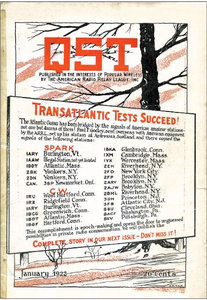
(1).jpg)

.jpg) The latest episode of the On the Air podcast (Episode 23) features an in-depth discussion of Q-signals, along with several on-the-air examples.
The latest episode of the On the Air podcast (Episode 23) features an in-depth discussion of Q-signals, along with several on-the-air examples..jpg) about the technical aspects of the 1921 Transatlantic Tests with Clark Burgard, N1BCG. We also chat about on-air activities surrounding the upcoming anniversary.
about the technical aspects of the 1921 Transatlantic Tests with Clark Burgard, N1BCG. We also chat about on-air activities surrounding the upcoming anniversary..jpg) In Alabama, Roger Parsons, KK4UDU, of Mulga, will become the new Section Manager on January 1. Parsons was the only nominee for the position. He has been an Assistant Section Manager and a District Emergency Coordinator. Incumbent SM JVann Martin, W4JVM, who has served as the Alabama Section Manager since 2016, decided not to run for a new term.
In Alabama, Roger Parsons, KK4UDU, of Mulga, will become the new Section Manager on January 1. Parsons was the only nominee for the position. He has been an Assistant Section Manager and a District Emergency Coordinator. Incumbent SM JVann Martin, W4JVM, who has served as the Alabama Section Manager since 2016, decided not to run for a new term.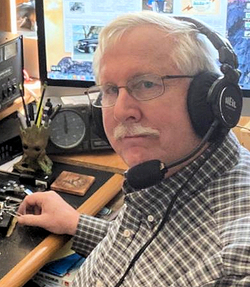
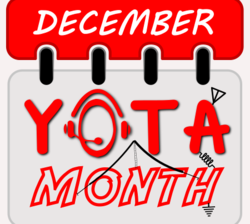 Argentina will be active as LR1YOTA, Cuba as CO0YOTA, and Peru as OA0YOTA. Other countries may be added. Listen for these stations, as well as other call signs with YOTA suffixes.
Argentina will be active as LR1YOTA, Cuba as CO0YOTA, and Peru as OA0YOTA. Other countries may be added. Listen for these stations, as well as other call signs with YOTA suffixes. Visit the
Visit the .png)
.jpg) country, making emergency responders unable to get information on the extent of the damage caused and what supplies and equipment were needed. The lack of communication capability hindered the ability of responders to deal with the humanitarian crisis.
country, making emergency responders unable to get information on the extent of the damage caused and what supplies and equipment were needed. The lack of communication capability hindered the ability of responders to deal with the humanitarian crisis.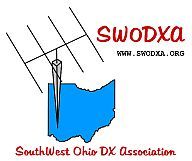 The Southwest Ohio DX Association (SWODXA) has given its
The Southwest Ohio DX Association (SWODXA) has given its 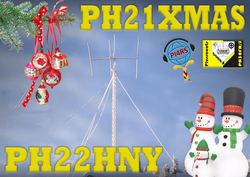 PH21XMAS will be a special Merry Christmas 2021 operation, conducted jointly by Radio Scouting, PI4RS, and Plusscouts, PA3EFR/J, from various locations in the Netherlands. PH21XMAS will be on the air December 6 - January 3, and PH22HNY will be on the air December 10 - January 31. Operation will be on SSB and digital modes.
PH21XMAS will be a special Merry Christmas 2021 operation, conducted jointly by Radio Scouting, PI4RS, and Plusscouts, PA3EFR/J, from various locations in the Netherlands. PH21XMAS will be on the air December 6 - January 3, and PH22HNY will be on the air December 10 - January 31. Operation will be on SSB and digital modes..jpg) W1BXY. "He was a fine mind, a generous mentor and colleague, and a consummate gentleman. He will be missed."
W1BXY. "He was a fine mind, a generous mentor and colleague, and a consummate gentleman. He will be missed."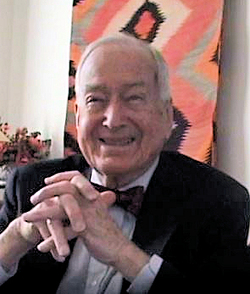 Army Air Corps (USAAC) during World War II. Maer served at various postings, including Lowry Air Force Base in Denver, as well as in Azores (Portugal), where he worked in communications and attained the rank of captain.
Army Air Corps (USAAC) during World War II. Maer served at various postings, including Lowry Air Force Base in Denver, as well as in Azores (Portugal), where he worked in communications and attained the rank of captain.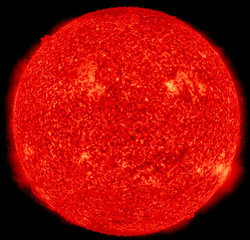 November 28, and two more on November 30.
November 28, and two more on November 30.







